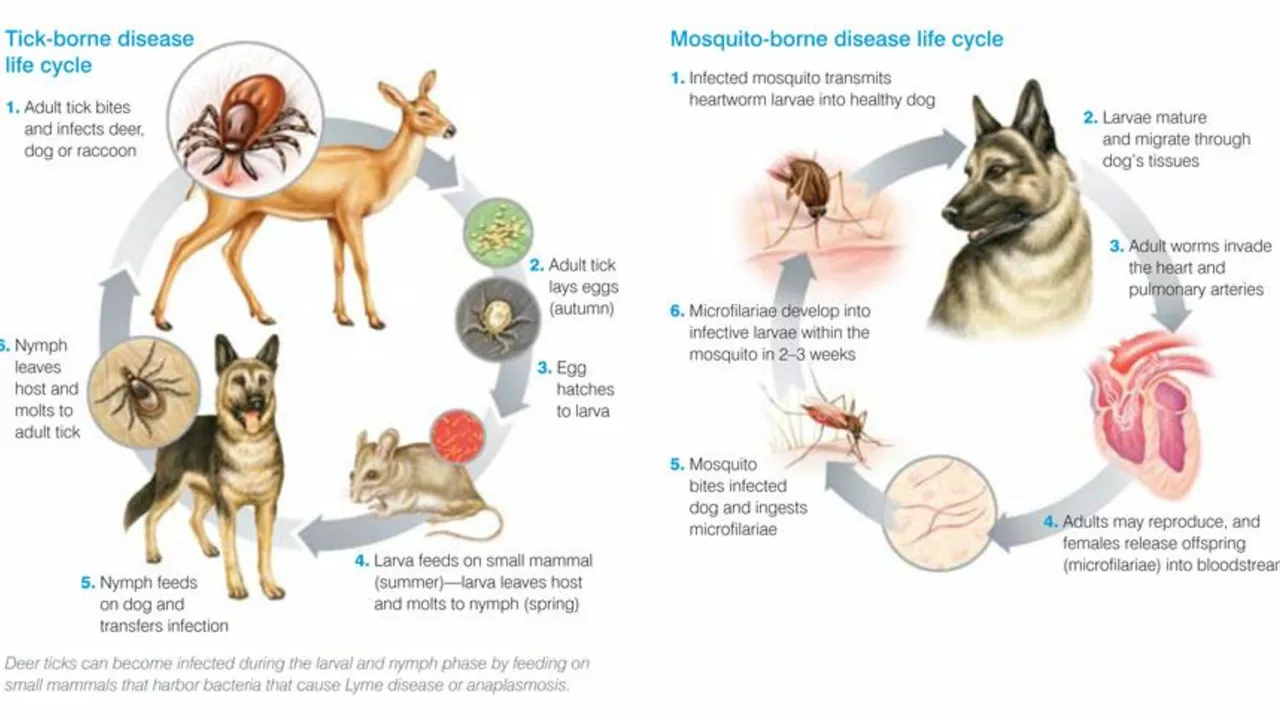
Understanding Tick Fever: An Overview
Tick fever, also known as tick-borne disease, is a serious and potentially life-threatening disease that is spread by ticks. It's important for everyone, especially those who spend a lot of time outdoors, to understand what tick fever is, how it's transmitted, and what the symptoms are. In this section, we'll provide a comprehensive overview of tick fever to help you better understand this dangerous disease.
The Different Types of Tick Fever
There are several different types of tick fever, each caused by different bacteria or viruses that ticks can carry. These include Lyme disease, Rocky Mountain spotted fever, and Tularemia, among others. Each of these diseases has different symptoms and requires different treatment. It's crucial to know about these different types so you can recognize the symptoms and seek appropriate treatment.
How Ticks Transmit Diseases
Ticks transmit diseases by biting humans or animals and then feeding on their blood. During this feeding process, the tick can inject the bacteria or virus it's carrying into the host's bloodstream. Understanding this process can help you take steps to prevent tick bites and reduce your risk of contracting tick fever.
Symptoms of Tick Fever
The symptoms of tick fever can vary greatly, depending on the specific type of tick-borne disease. However, common symptoms include fever, headache, fatigue, and a characteristic skin rash. It's important to remember that these symptoms can be easily mistaken for other illnesses, so it's always best to seek medical attention if you suspect you may have been bitten by a tick.
The Dangers of Untreated Tick Fever
If left untreated, tick fever can lead to serious complications, including damage to the heart, lungs, and nervous system. In some cases, it can even be fatal. That's why it's crucial to seek medical attention as soon as possible if you suspect you may have tick fever.
Preventing Tick Bites
Preventing tick bites is the best way to protect yourself from tick fever. There are several steps you can take to reduce your risk, including using insect repellent, wearing long sleeves and pants when in wooded or grassy areas, and checking your body for ticks after spending time outdoors. We'll explore these prevention strategies in more detail in this section.
What to Do If You've Been Bitten by a Tick
If you've been bitten by a tick, it's important to remove the tick as soon as possible to reduce your risk of contracting tick fever. This section will provide detailed instructions on how to properly remove a tick and what to do afterward.
Treatment Options for Tick Fever
If you've been diagnosed with tick fever, there are several treatment options available, depending on the specific type of tick-borne disease you have. These can range from antibiotics to more intensive treatments for more severe cases. This section will provide an overview of the various treatment options for tick fever.
Living with Tick Fever
Finally, we'll discuss what life is like for those living with tick fever. This includes managing symptoms, dealing with the emotional impact of the disease, and navigating the healthcare system. We'll provide resources and advice to help those affected by tick fever live their best life possible.
9 Comments
Write a comment
More Articles

Cordarone (Amiodarone) vs. Alternatives: What Works Best for Arrhythmias?
Cordarone (amiodarone) is effective for serious heart rhythm disorders but carries serious long-term risks. Learn how alternatives like sotalol, dronedarone, and ablation compare in safety and effectiveness.

Reed Herb Benefits: Unlocking the Power of a Hidden Supplement Gem
Dig deep into the world of reed herb—the supplement hardly anyone talks about, but everyone should. Find out what's really inside reed herb, how people have used it for centuries, and what new science says about its benefits. Practical tips, relevant research, and even some surprising facts await. This guide is everything you need to know if you're thinking about trying reed herb. No fluff—just useful, real-world info for curious minds.

How to Manage Medication Costs During Medicare Part D Coverage Gaps in 2024 (Before the Donut Hole Ends)
Learn how to lower prescription drug costs during Medicare Part D's coverage gap (donut hole) in 2024 before it ends. Discover real strategies like manufacturer discounts, generic switches, and Extra Help to avoid financial strain.
Sean Kemmis
July 21, 2023 AT 16:50Tick bites are a legitimate reason to double‑check your skin after a hike.